The Future of Farming to Meet Sustainable Development Goals in Africa: Reflections on Soil Health and Policy
Virtual Dialogue Event
Wednesday, April 14, 2021
9:00am-1:00pm EDT (GMT-04:00)
Co-hosted by:
Agenda
9:00AM: Introductory outlook: The Future of Farming to Meet Sustainable Development Goals in Africa: Reflections on Soil Health and Policy.
Thom Jayne and Sieglinde Snapp, MSU
9:20AM: 7 sessions of 20 minutes each (12-minute presentations followed by 8 minutes open discussion):
- Toward a Sustainable Agricultural Productivity Growth Strategy to Guide the Africa Union Abuja II Summit. John Olwande, ReNAPRI and Egerton University
- Extension innovation for inclusive, adaptative agriculture. Daimon Kambewa (LUANAR), Alison Nord (MSU) and Dan Teravest (Our-Sci.net)
- Agricultural policies addressing sustainable agricultural intensification. Saweda Liverpool-Tasie, MSU
- Policy and Legal Reforms to Support the Development of fertilizer supply chains in Africa. Katrin Kuhlmann, New Markets Lab and Georgetown University
10:40AM: Short health break (15 min)
- Soil health and SDGs: A global movement. Edmundo Barrios (FAO)
- Integrating and promoting the use of organic inputs into fertilizer subsidy programs. Nancy Mungai (Egerton University), Keston Njira (LUANAR) and Lisa Tiemann (MSU)
- Soil health lessons from the field. (Regis Chikowo (MSU/UZ), Sieg Snapp (MSU) and Wezi Mhango (LUANAR)
11:45PM: Panel discussion (Moderator: Richard Mkandawire)
- Cheryl Palm, University of Florida
- Rob Groot, IFDC
- Martin Fregene, African Development Bank
- Christian Witt, Bill and Melinda Gates Foundation
12:30PM: Open discussion (20 min)
12:50PM: Closing
Background
Achieving Sustainable Development Goals (SDGs) is a global challenge, becoming acute in the face of climate change, natural resource degradation, and diseases affecting humans, animals and plants. Technologies and practices that promote sustainable intensification on smallholder farms vary spatially according to the diverse ways in which economic transformation and population dynamics are influencing the costs of land, farm labor, and cash inputs such as fertilizers and improved seeds. At this seminar we will reflect on how to achieve sustainable productivity gains through investments in soil health and knowledge. Reports have been commissioned on pioneering efforts in East and Southern Africa to engage and empower farmers and communities through approaches that specifically support disadvantaged youth and women. Highlights will include innovations in extension, soil health monitoring and agricultural policy around sustainable intensification. Firsthand experiences will be shared on how to scale out bidirectional learning and access to inputs, to address food security, and simultaneously, environmental security. A panel of experts will reflect on the frontline experiences presented, and consider how sustainable agriculture intensification can be further supported and scaled out, in a rapidly changing world. Overall, this will be a unique opportunity for lessons to be synthesized from cutting-edge innovations in soil health for SDG, and made available for broader learning.
Featured Speakers
Thomas Jayne - Michigan State University
•Thomas Jayne is University Foundation Professor of Agricultural, Food, and Resource Economics at Michigan State University. He is a Fellow of the Agricultural and Applied Economics Association (AAEA) and a Distinguished Fellow of the African Association of Agricultural Economists.
•His research focuses on agricultural commodity and input markets, changing farm size distributions, rural transformation, and sustainable agricultural productivity growth in Africa. In 2017, he became the Flagship Co-Leader of the CGIAR Policies, Institutions and Markets research program on
Economy-wide Factors Affecting Agricultural Growth and Rural Transformation. •He has mentored dozens of young African professionals and played a major role in building MSU’s partnerships with African agricultural policy research institutes. Since 2019, Jayne has been serving as Senior Advisor to the President of the African Development Bank.
•Over the past decade, he has received six research excellence awards, including the 2009 Outstanding Article Award in Agricultural Economics and the 2017 AAEA Bruce Gardner Memorial Prize for Applied Policy Analysis.
Sieglinde Snapp - Michigan State University
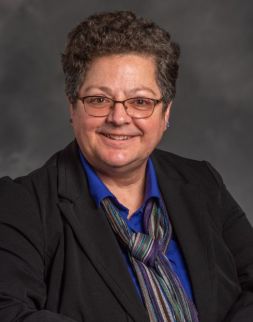
•Dr. Sieglinde Snapp is a Professor of Soils and Cropping Systems Ecology in the Department of Plant, Soil and Microbial Sciences and Associate Director of the Center for Global Change and Earth Observations at Michigan State University.
•She founded the Global Change Learning Lab in Sub-Saharan Africa.
•Dr. Snapp is a leader in extension scholarship, including developing participatory global learning platforms, remote sensed and ICT data for innovations in decision guides.
•Her research interests include agricultural systems, ecologically sound management, sustainable intensification, and soil health.
John Olwande – ReNAPRI and Egerton University
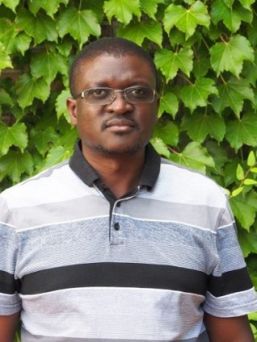
•John Olwande earned his PhD from Michigan State University in the Department of Community Sustainability, focusing on International Development.
•John has over 10 years of experience in economic and policy research in agriculture and rural sector. He has worked with Tegemeo Institute, Egerton University in building household survey databases to monitor changes in the agricultural sector from household and national perspectives and provided analyses and insights to shape policy direction in agriculture and rural sectors in Kenya.
•His areas of research include agricultural technology adoption and sustainable intensification, food and nutrition security, integration of smallholder farmers into markets and impact evaluation of policy and development projects/programs.
Daimon Kambewa – Lilongwe University of Agriculture and Natural Resources (LUANAR)
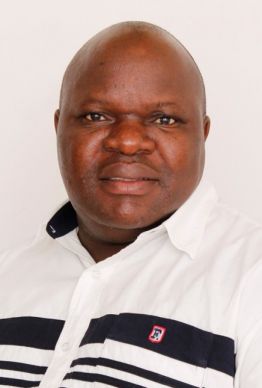 •Daimon Kambewa is an associate professor at the department of Extension of the Lilongwe University of Agriculture and Natural Resources (Bunda College of Agriculture) where he obtained an MSc and PhD in Rural Development and Extension.
•Daimon Kambewa is an associate professor at the department of Extension of the Lilongwe University of Agriculture and Natural Resources (Bunda College of Agriculture) where he obtained an MSc and PhD in Rural Development and Extension.
•He is a Social Scientist specialized in the field of sociology of rural development. His major concern is the transformation of the rural and agrarian society. He studies family, descent and kinship systems, and agro-ecologies to expose the significance of social and power relations in rural development and natural resource management, and conducts research on the social learning and agricultural transformation, adoption and diffusion of agricultural technologies, farmer innovations, agro-ecological intensifications, customary land, agricultural extension systems and the Extension Policy, rural development strategies.
Dan Teravest – Our-Sci.net
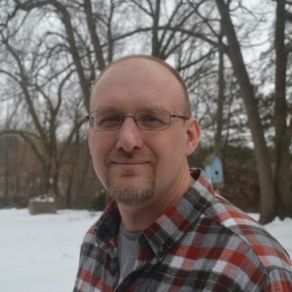
•Our Sci's mission is to develop low-cost and accessible open-source hardware and software tools to support community-driven research. Dan is experienced in bridging the divide between tool development and user experience, coordinating between technical and user teams in the USA, Africa and Australia to develop appropriate tools and methods.
Saweda Liverpool-Tasie – Michigan State University
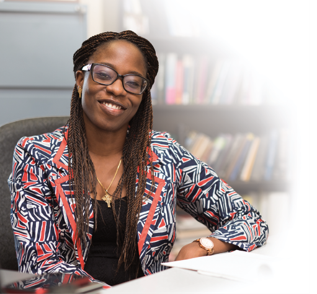 •Dr. Saweda Liverpool-Tasie is a tenured associate professor in the Department of Agricultural, Food, and Resource Economics at Michigan State University.
•Dr. Saweda Liverpool-Tasie is a tenured associate professor in the Department of Agricultural, Food, and Resource Economics at Michigan State University.
•Her research focusses on emergent issues related to smallholder productivity and welfare within dynamic and transforming food systems in sub Saharan Africa and alongside poorly functioning markets, climate change and globalization. She has extensive experience on program evaluation using various quantitative methods in Africa. She has designed, implemented and analyzed data from field surveys across Africa and has looked at gendered access to land and other inputs in Africa. She has led several efforts on designing and implementing capacity building projects in Africa.
•Currently Dr. Liverpool-Tasie is the Principal investigator of the USAID funded Feed the Future Nigeria Agricultural Policy Project which strives to support the policy process in Nigeria with evidence based on scientific research. She is a member of several multidisciplinary teams focused on issues of food security, sustainable agricultural intensification, food safety and value chain transformation in developing countries.
Katrin Kuhlmann – New Markets Lab and Georgetown University
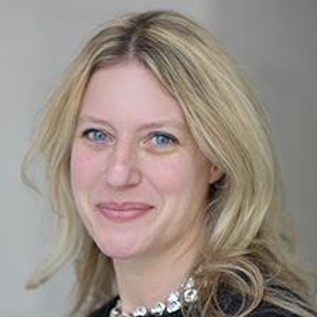
•Katrin Kuhlmann is a Visiting Professor of Law at Georgetown University Law Center and the President and Founder of the New Markets Lab, a non-profit law and development center. She is a Senior Associate with the Global Food Security Program of the Center for Strategic and International Studies (CSIS) and the Yeutter Visiting Professor of Law at the University of Nebraska College of Law – Clayton Yeutter Institute of International Trade and Finance.
•Her areas of research and practice include the intersection between international economic law and sustainable development, international trade law and policy, agricultural law and regulation, the development dimension of regional trade agreements, and comparative law.
•She serves as a member of the Trade Advisory Committee on Africa of the Office of the United States Trade Representative (USTR) and the Bretton Woods Committee and sits on several boards and advisory boards. She was previously a Lecturer on Law at Harvard Law School, a trade negotiator at USTR, and a trade and corporate lawyer at two international law firms.
Edmundo Barrios – Food and Agriculture Organization (FAO)
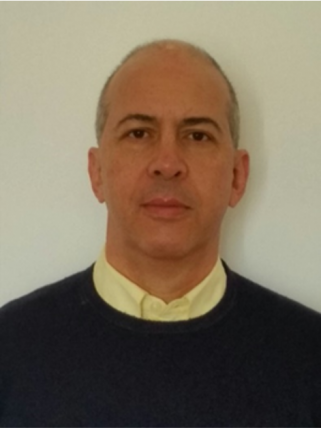
•Edmundo Barrios is an Agricultural Officer at the Plant Production and Protection Division of FAO. He provides technical and policy-related advice on soil health, biodiversity & ecosystem management supporting transitions towards sustainable agriculture and food systems. He holds a BSc in Biology from University of California at Berkeley, MSc in Ecology and Environmental Sciences from the Venezuelan Institute for Scientific Research (IVIC) and a PhD in Agroforestry and Soil Ecology from the University of Dundee, UK/ICRAF.
•He brings more than 20 years of research for development experience with the CGIAR investigating the linkages between soil health, biodiversity and productivity in agricultural landscapes. About half of that period with CIAT, the International Center for Tropical Agriculture, based in Cali, Colombia and the other half with ICRAF, the World agroforestry Center, based in Nairobi, Kenya.
•Prior to joining ICRAF, Edmundo was a Giorgio Ruffolo Research Fellow in Sustainability Science at Harvard University’s Center for International Development and CNPq Visiting Researcher at the National Soils Research Center of EMBRAPA, the Brazilian Agricultural Research Corporation.
Lisa Tiemann – Michigan State University
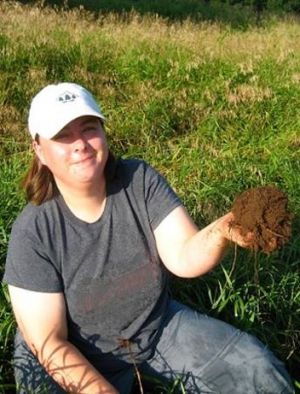
•Dr. Lisa Tiemann is currently Assistant Professor of Soil Biology in the Plant, Soil and Microbial Sciences Department at Michigan State University. With a Ph.D. in Ecology and Evolutionary Biology from the University of Kansas, she takes an agroecological approach to research, which is critical for developing innovative approaches to agriculture that simultaneously increase system productivity, resilience and sustainability.
•Dr. Tiemann began working in western Africa in 2013 as a National Science Foundation, Science, Engineering and Education for Sustainability Fellow. Her work in Uganda explored social and economic drivers of management that alter soil organic matter stocks with consequences for soil fertility, soil health and crop productivity. Dr. Tiemann continues to work in western Africa, Malawi and Kenya, across multiple disciplines to promote understanding of the importance of managing soil microbes and soil organic matter for healthy, fertile soils.
•The ultimate goal of her research is to determine how we can help farmers manage agroecosystems to improve soil health and sustain the critical ecosystem services soils provide in support of food production for a rapidly growing human population.
Nancy Mungai – Egerton University
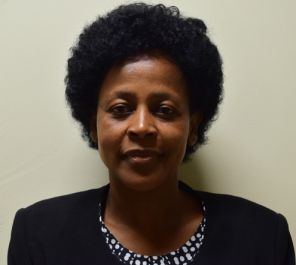 •Nancy Mungai is an associate professor of soil fertility and microbiology at Egerton University.
•Nancy Mungai is an associate professor of soil fertility and microbiology at Egerton University.
•Her research interests are in biological nitrogen fixation in grain legumes, biological agricultural inputs, and relevance of soil-based approaches for adaptation & mitigation to climate change. She has successfully coordinated several research projects and student internship programs.
•Nancy is currently involved in two projects; a) Transforming African Agricultural Universities to meaningfully contribute to Africa’s growth and development (TAGDev) partnership with the MasterCard Foundation, RUFORUM, Gulu University and Egerton University. b) Enhancing African rural transformation: University based strategies for driving application and uptake of grain legumes and dry land cereals innovations by RUFORUM GLDC Innovation Fund.
•Nancy has supervised over 15 graduate students and has published 45 papers in internationally refereed and peer-reviewed journals, conference proceedings and technical reports.
Cheryl Palm – University of Florida
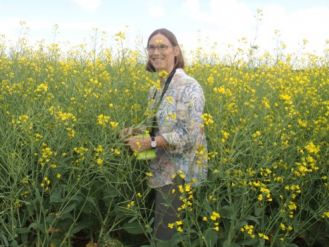
•Cheryl Palm is a Research Professor in Agricultural and Biological Engineering, Affiliated Professor in Soil and Water Sciences, and Associate Director of the Food Systems Institute the Institute for Sustainable Food Systems, and at the University of Florida.
•A tropical ecologist and biogeochemist, Dr. Palm’s research focuses on land use change, degradation and rehabilitation, and ecosystem processes in tropical agricultural landscapes. She has spent much of the past 20 years investigating soil carbon nutrient dynamics in farming systems of Africa. As part of the Feed the Future Sustainable Intensification Innovation Lab she co-developed sustainability indicators, metrics, and methods for assessing and monitoring the sustainability of agricultural intensification.
•Palm received her Ph.D. in soil science from North Carolina State University after completing her Bachelor’s and Master’s degrees in zoology at the University of California, Davis. She served as Senior Research Scientist at The Earth Institute, Columbia University (2003-2016), Principal Research Scientist of the Tropical Soil Biology and Fertility Program in Nairobi, Kenya (1991-2001). Palm is a Fellow of the American Society of Agronomists and served as chair of the International Nitrogen Initiative (INI) from 2008 to 2011.
Rob Groot - International Fertilizer Development Center
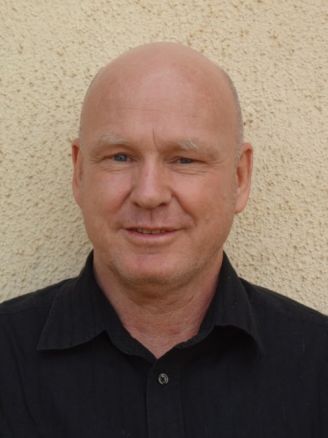 •Rob Groot is Director Partnerships at the International Fertilizer Development Center (IFDC), which includes the collaboration between IFDC, Development Partners and the Global Fertilizer Industry, and the development of specific business opportunities worldwide.
•Rob Groot is Director Partnerships at the International Fertilizer Development Center (IFDC), which includes the collaboration between IFDC, Development Partners and the Global Fertilizer Industry, and the development of specific business opportunities worldwide.
•He has over 30 years of experience in international agricultural development and business development, particularly relating to food security and soil fertility management in sub-Saharan Africa. He has been Director at IFDC since 2004 where he managed IFDC’s Field Operations in Africa and Globally. During this period, IFDC has seen a 10-fold expansion of its activities Africa, where projects are increasingly done in collaboration with the private sector, including the fertilizer and the agro-food industry.
•Prior to joining IFDC, Rob did research and business development on soil fertility improvement, soil organic matter management, fertilizer use and climate change in Africa, working for Wageningen University in the Netherlands. He holds an MSc in biology and agronomy from Wageningen University.
Martin Fregene – African Development Bank
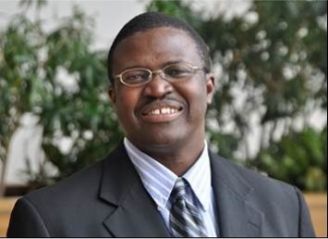
•Dr. Martin Fregene is Director of Agriculture and Agro-Industry at the African Development Bank. He is a plant geneticist and molecular breeder with 25 years of experience in genetics and breeding of cassava. Dr. Fregene developed the first molecular genetic map of cassava and started the first cassava molecular breeding program to accelerate development of improved cassava varieties for various agro-ecologies of Africa, Asia, and Latin America.
•He began his career at the International Institute of Tropical Agriculture (IITA), Ibadan, Nigeria, in 1991. While at IITA, he was a recipient of a Rockefeller Foundation post-doctoral fellowship on genetic mapping that took him to the International Center for Tropical Agriculture (CIAT) in Cali, Colombia. After CIAT he joined the BioCassava Plus project, a multi-national development program funded by the Bill and Melinda Gates Foundation, where he rose to the position of Director of the project.
•Dr. Fregene received his B.S., M.S., and Ph.D. degrees from the University of Ibadan, Nigeria.
Christian Witt – Bill & Melinda Gates Foundation
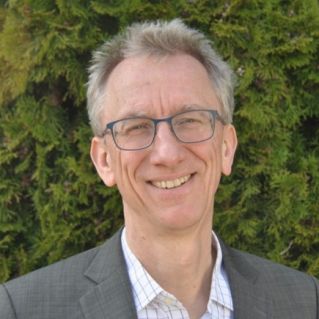
•Dr. Christian Witt is Senior Program Officer in the Agricultural Development team at the Bill & Melinda Gates Foundation.
•He provides strategic direction on innovation in soil health and agronomy as part of the Digital Farmer Services Portfolio aimed at increasing productivity and income of small-scale producers in Sub-Saharan Africa and South Asia.
•Prior to joining the foundation, he was scientist and project manager in international agricultural research with 17+ years of experience in plant nutrition and soil nutrient management in the tropics.



 •Daimon Kambewa is an associate professor at the department of Extension of the Lilongwe University of Agriculture and Natural Resources (Bunda College of Agriculture) where he obtained an MSc and PhD in Rural Development and Extension.
•Daimon Kambewa is an associate professor at the department of Extension of the Lilongwe University of Agriculture and Natural Resources (Bunda College of Agriculture) where he obtained an MSc and PhD in Rural Development and Extension.
 •Dr. Saweda Liverpool-Tasie is a tenured associate professor in the Department of Agricultural, Food, and Resource Economics at Michigan State University.
•Dr. Saweda Liverpool-Tasie is a tenured associate professor in the Department of Agricultural, Food, and Resource Economics at Michigan State University.


 •Nancy Mungai is an associate professor of soil fertility and microbiology at Egerton University.
•Nancy Mungai is an associate professor of soil fertility and microbiology at Egerton University.
 •Rob Groot is Director Partnerships at the International Fertilizer Development Center (IFDC), which includes the collaboration between IFDC, Development Partners and the Global Fertilizer Industry, and the development of specific business opportunities worldwide.
•Rob Groot is Director Partnerships at the International Fertilizer Development Center (IFDC), which includes the collaboration between IFDC, Development Partners and the Global Fertilizer Industry, and the development of specific business opportunities worldwide. 
